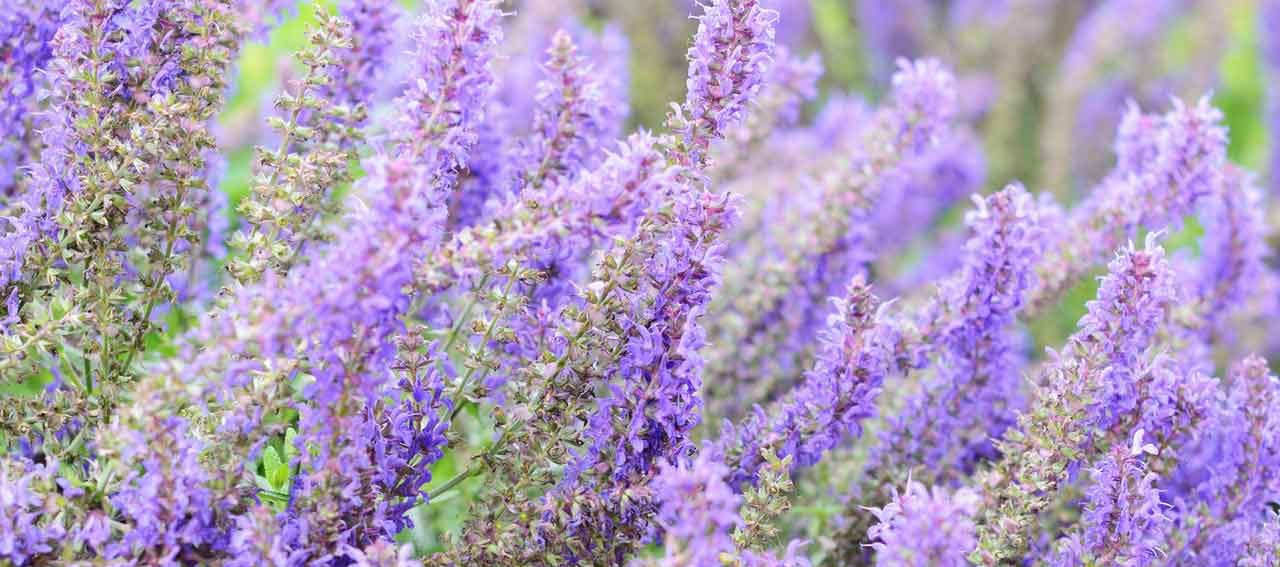How to Improve Your Memory and Mood with Sage

The traditional spice sage may become the basis for future antidepressants and memory drugs based on research of how it helps improve people's memories.
People have used the spice sage to heal memory problems as far back as the 1500s, which may be why the word also means “wise.” Sage refers to a family of plants called salvia, and the health properties of each variety have been studied separately. Studies suggest there is promising evidence the spice can help boost mental functions, even in people with dementia. It may also improve mood, blood sugar levels, and hot flashes.
In studies, scientists use extracts, oils, and teas rather than simply sprinkling powder on food. But spicing a dish with sage won’t hurt. You might also try using sage as aromatherapy. Smelling sage oil, one study found, improved memory in a group of normal volunteers.
YOU MIGHT ALSO LIKE: Do Essential Oils Work?
Spanish sage (S. lavandulifolia)
In a small but well-designed study, scientists tested healthy young adults on their ability to recall words, gave them a dose of Spanish sage in an essential oil extract, and then tested their word recall at intervals over the next six hours. A week later, they did the same experiment again. Both times, the Spanish sage did improve memory.
The study also included a group of people who received a placebo and didn’t show the same improvement. Another study with the same format found memory-boosting effects of Spanish sage in adults ages 65 and up.
Spanish sage may also improve mood in healthy young volunteers, according to a study in which they reported feeling greater alertness, calmness, and contentedness after receiving a dose. A placebo group did not report the same effects.
Ordinary sage (S. officinalis)
The sage you see most commonly has shown some good effects on people with dementia in early research. In a four-month study in three medical centers in Iran, 42 patients with mild-to-moderate Alzheimer's disease aged between 65 and 80 years were divided randomly into a group that received a placebo and a group that got a 60 drops daily of ordinary sage in an extract.
The patients who received the sage experienced no side effects and improved their scores on cognitive tests, while the placebo group did not. The placebo group also seemed to be more agitated, the researchers reported.
In people with Alzheimer’s, the enzyme acetyl cholinesterase (AChE) degrades or turns off the brain chemical acetylcholine. You may have heard of AChE inhibitor drugs, which counteract that problem and enhance the acetylcholine in the brain. Essential oil of sage has been shown to inhibit 46 percent of AChE activity at a concentration of 0.5 mg/ml, studies have found.
S. officinalis has been used as a traditional remedy against diabetes in many countries. There is evidence of good effects on blood sugar from animal studies, which suggest that the spice has a similar mechanism to metformin, the most common anti-diabetes medication. Drinking sage tea twice a day has improved the lipid profile in humans, which is related to diabetes, without any negative consequences.
In a Swiss study, when women with hot flashes took daily tablets of fresh sage leaves for eight weeks, they eliminated the most severe hot flashes by the end of the study and cut mild ones by about half.
Clary sage oil (S. sclarea)
This form of sage is a traditional remedy to revive tired or strained eyes. Germans call it “muscatel sage” because they include the seeds in muscatel wine. It has been studied as a mood-booster for women in their 50s. Researchers found that inhaling the oil decreased the levels of cortisol, a sign of stress, in a small group of women, and increased levels of a serotonin dramatically, both in women who scored as depressed in a self-rated questionnaire and those with normal moods.
Speak to your doctor before trying supplements, teas, or oils. In the meantime, you can try fresh sage in an omelet, in roast chicken, in onion with stuffing, on polenta, or with white beans.
Updated:
April 18, 2023
Reviewed By:
Janet O’Dell, RN